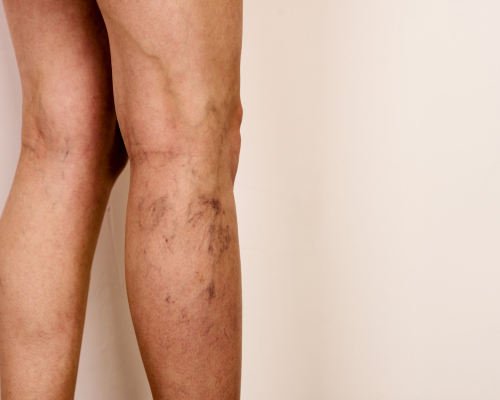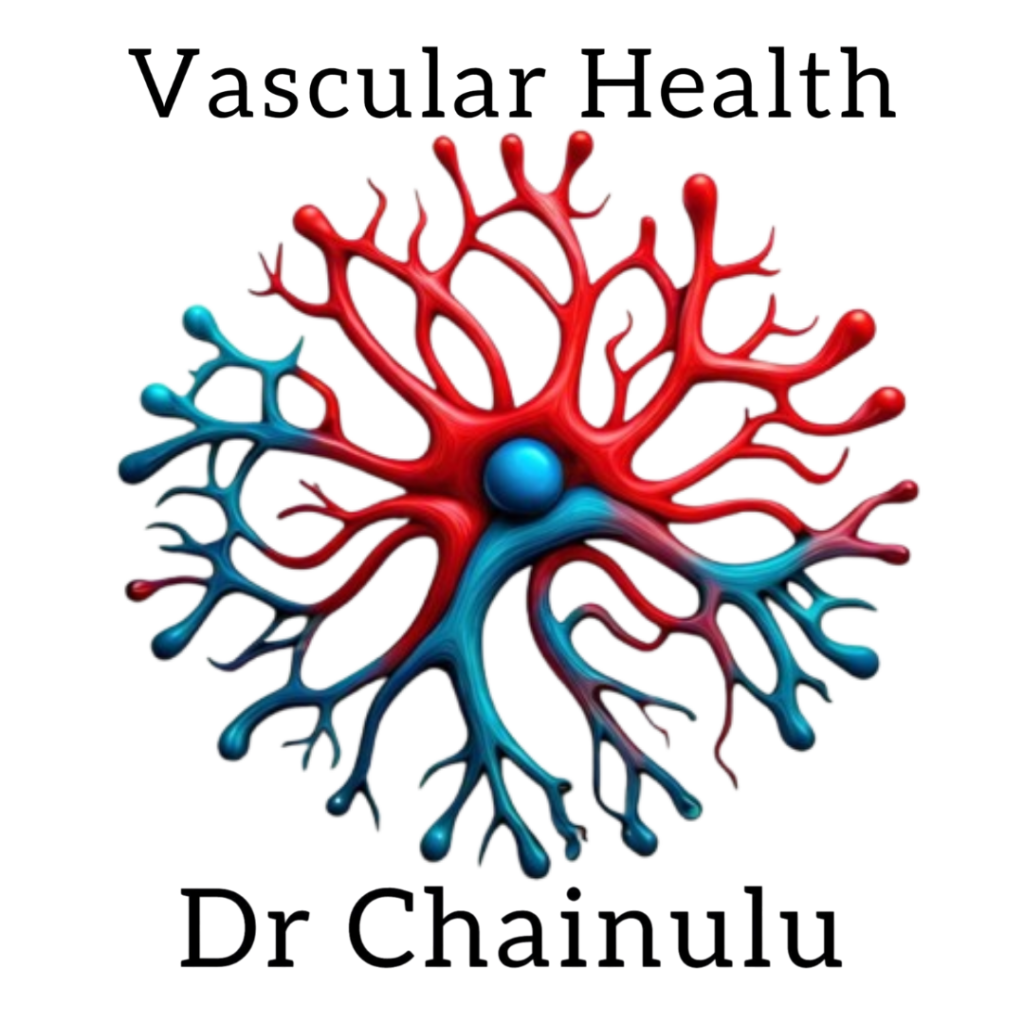Deep Vein Thrombosis
What is Deep Vein Thrombosis (DVT)?
Deep Vein Thrombosis, commonly known as DVT, is a medical condition where a blood clot forms in one of the deep veins in the body, usually in the legs. These clots can block blood flow, causing pain and swelling. If left untreated, DVT can lead to serious complications.
Symptoms of DVT
The signs of DVT can vary, and some people may not experience noticeable symptoms. However, common symptoms include:
- Swelling in one leg (rarely both).
- Pain or tenderness in the affected leg, often starting in the calf.
- Skin that feels warm to the touch over the clot area.
- Red or discolored skin on the leg.
If you notice any of these symptoms, especially if they develop suddenly, it’s important to seek medical attention immediately.
Causes and Risk Factors
DVT occurs when blood flow slows down, leading to clot formation. Some common causes and risk factors include:
- Prolonged Immobility: Sitting for long periods, such as during a long flight or car ride, can slow blood flow in the legs.
- Surgery or Injury: These can damage blood vessels or make you less mobile, increasing the risk.
- Medical Conditions: Conditions such as cancer, heart disease, or inherited blood disorders can raise the risk of DVT.
- Pregnancy: Increased pressure on the veins in the pelvis and legs can contribute to clot formation.
- Lifestyle Factors: Smoking, obesity, and lack of physical activity can increase the risk.
- Age and Family History: Being over 60 or having a family history of DVT can make you more susceptible.
Why is DVT Dangerous?
DVT itself is a serious condition, but the potential complications make it even more dangerous. The most severe risk is Pulmonary Embolism (PE), which occurs when a blood clot breaks free and travels to the lungs. This can block blood flow and be life-threatening.
Diagnosis
Doctors typically diagnose DVT through:
- Physical Examination: Assessing swelling, redness, or tenderness in the leg.
- Ultrasound: This imaging test is the most common and helps detect blood clots in the veins.
- Blood Tests: A D-dimer test can measure clot-related substances in the blood.
- Other Imaging Tests: In rare cases, a venography or CT scan may be needed for detailed imaging.
Treatment Options
Effective treatments for DVT focus on preventing clot growth and reducing the risk of complications:
1. Compression Stockings
These special stockings apply gentle pressure to your legs, improving blood flow and reducing the risk of swelling.
2. Surgical Procedures
- Venous Thrombectomy: In rare cases, doctors may recommend surgery to remove large clots.
- Inferior Vena Cava (IVC) Filter: A filter can be placed in the large vein to catch clots before they reach the lungs.
Preventing DVT
While it’s not always possible to prevent DVT, adopting certain habits can significantly reduce your risk:
- Stay Active: Regular exercise helps improve circulation. Avoid sitting for prolonged periods.
- Move During Long Trips: On long flights or drives, take breaks to walk around and stretch your legs.
- Wear Compression Stockings: These are particularly helpful after surgery or if you’re at high risk of DVT.
- Maintain a Healthy Weight: Excess weight puts added pressure on your veins.
- Quit Smoking: Smoking can increase clot risk by affecting blood vessel health.
When to Seek Help
If you suspect you have DVT or notice symptoms such as swelling, redness, or pain in one leg, seek medical attention immediately. Additionally, symptoms such as sudden shortness of breath, chest pain, or coughing up blood could indicate a pulmonary embolism and require emergency care.
Why Choose Dr. Chainulu for DVT Care?
Dr. Chainulu is a trusted expert in vascular health, providing advanced diagnostic and treatment options for DVT. With a patient-focused approach and state-of-the-art facilities, you can expect compassionate care tailored to your needs.
Take Action Today
Don’t wait to address your concerns about DVT. Early diagnosis and treatment are crucial for preventing complications and ensuring better outcomes. Schedule a consultation with Dr. Chainulu to discuss your risk factors, symptoms, or treatment options.

Our Services
- Varicose Veins
- Deep Vein Thrombosis
- Vascular Malformation
- Aortic Aneurysms
- Mesenteric Vasculature
- Acute Limb Ischemia
- Peripheral Arterial Disease
- Stroke Prevention
- Angiography
- Vascular Access for Chemotherapy
- Spider Veins
- Glue Therapy
- Sclerotherapy
- AV Fistula
- Uterine Fibroid Embolisation
- Varicocele Embolisation
- Thyroid Ablation
- TACE
- Prostatic Artery Embolisation
- Varicocele Embolisation
